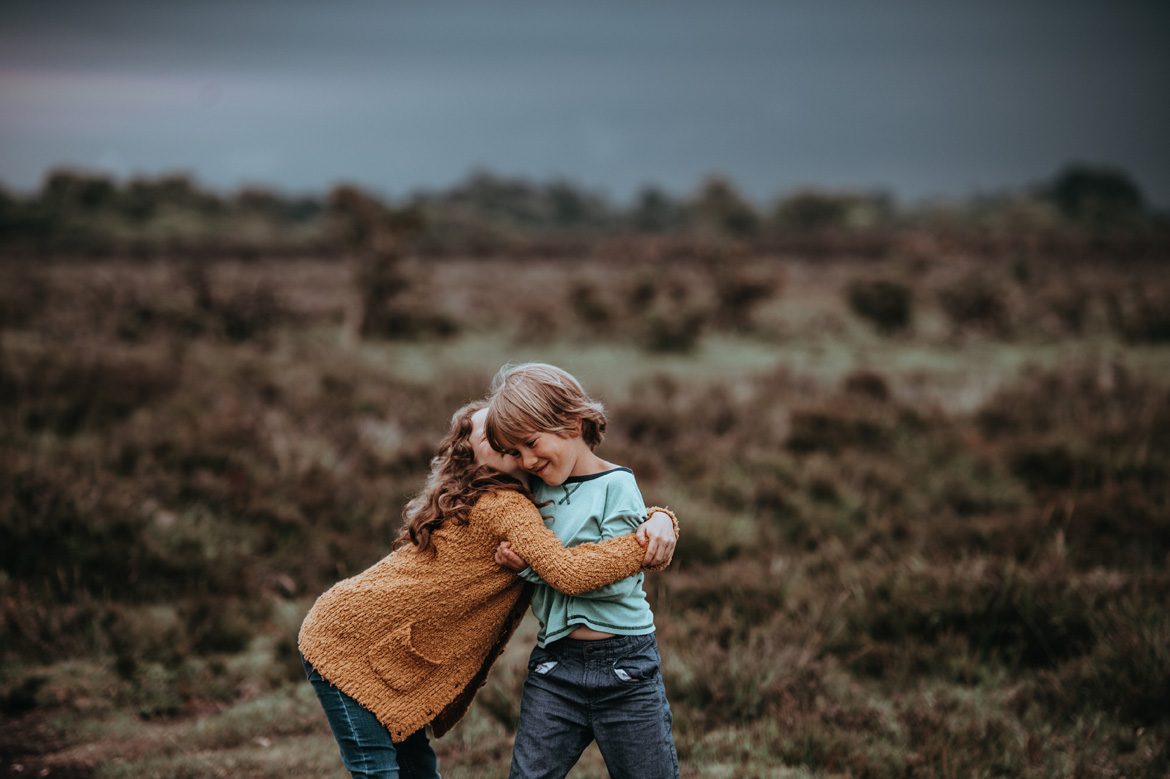By Genevieve Simperingham
“You can’t, and it’s better if you don’t, solve all of your child’s problems, but you can share them.”
Assume your child’s doing their best. When children argue they’re not trying to make life difficult, but rather they’re experiencing a problem, one that’s very big and very real to them. Children much prefer to be having fun. When two kids argue, they generally both feel frustrated, misunderstood, wrongly accused, rejected and overwhelmed, to name but a few emotions. Additionally fearing their parent’s rejection, blame or, worse still, punishment is not what they need. What they do need is help with managing those uncomfortable feelings that build up in their young bodies and support to solve their problems.
A truly respectful and constructive approach that helps fighting children is to become an empathic mediator rather than a referee. Until a child experiences and hence embodies the direct experience of being treated with respect and empathy during conflicts, they are unlikely to respond to others with respect and consideration during conflicts.
Those who adopt this approach are generally impressed with how positive and creative children are at owning and solving problems when given the right support, encouragement and role modelling. Children soon get the hang of it and start to problem-solve themselves with minimal adult intervention.
We all bring to our parenting deeply engrained beliefs that we gained during our childhood years. How did your parents react when you fought with another child? Were you supported with your difficult feelings? What subsequent messages did you receive about yourself? How did your parents deal with conflicts between each other? One of the most valuable changes we can make as parents is to re-evaluate the beliefs we bring to current conflicts in the family, leading us to relate in more supportive ways to the feelings and needs that drive conflicts between all family members.
“If their own parents fought frequently, any fighting in a home can bring up feelings of terror and a compulsive desire to end the argument at any cost.” Dr. Aletha Solter
Brett, father of three children, sought my help because of the tensions between him and his wife around their differing approaches to sibling conflicts. His wife was working hard to support and mediate the kids when they fought, which was happening a LOT! He didn’t really see the point of mediating. But being a loving and dedicated father and husband, he wanted to do all he could to help things improve. He recounted to me, “When my sister and I fought, our parents gave us a warning and if we didn’t stop fighting, they separated us. We each spent time in our own room until we cooled off, then after that we just got on with it and it didn’t do us any harm. Occasionally, we were smacked, but not very often.”
I offered to help Brett remember the same instances from his childhood through his feelings, not just his thoughts (our thinking memory is often very different from our feeling memory).
Brett shared his memory of lying on his bed thinking “This is so unfair!” He remembered, and again felt, a huge ball of frustration in his belly; he felt completely misunderstood and frustrated at not being allowed to explain his side of the story; he remembered the sadness at falling out with his sister and then with his parents; he felt shame, anger, confusion. Brett remembered lying there feeling alone, unloved and overwhelmed. He described the tension in his jaws, shoulders, chest and belly as he let himself remember all those (surprisingly) overwhelming feelings.
Brett then brought his insights back to his kids and said he didn’t want them to feel like that, but he just knew that they did. He could see all the evidence of it and now cringed to realize that they felt like that all too often. He sadly realized that his attitude to conflicts was similar to his parents. He never learned how to work through conflict and now as a parent he just didn’t know what to do when the kids fought. He simply used his age, size and parental authority to make it stop, but nobody was learning how to actually resolve conflicts in a healthy and mature way.
Following his shift in perception, Brett’s approach changed. He is now driven by empathy for his children’s feelings and is more patient, supportive and empathic when conflicts arise. He has noticed when they feel really heard and understood, they are able to calm down, be more reasonable and come up with their own solutions!
It’s OK that children disagree, don’t want to share, and feel big feelings. Every upset between children is a learning opportunity. When adults repeatedly enforce their solutions on children’s problems, children are deprived of the opportunity to even try and work it out. These solutions tend to be aimed at just making the conflict stop – “don’t do that”, “stop fighting”, “give that back”, “go to your room” – without helping children with their frustrations, needs or confusion. It’s normal for children to not want to share (especially when they’re out of balance) or to want what the other one has, and it’s normal for children to be sensitive and get upset. When children pick up that their feelings are unacceptable to an adult, they can feel lonely, confused and overwhelmed.
“Love accepts what is. Fear looks to blame because things are not going as they “should”. Love looks for solutions as it accepts what is. Fear looks for blame, love seeks solutions.” Becky A. Bailey PhD
Conflicts happen in most families on most days. Working with parents, I hear lots of stories of children fighting from the minor to the more extreme. Typical examples are sharing “the live toy”; when two or more children don’t want another child to play with them; and when older children don’t want younger ones tagging along. Let’s explore a fairly typical example.
See next page for the rest of the article…











